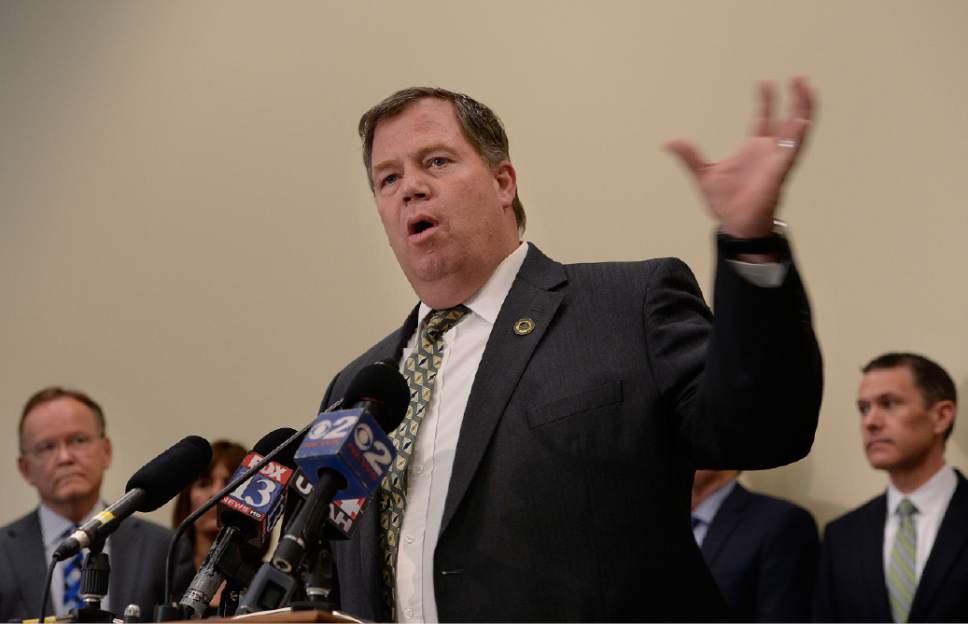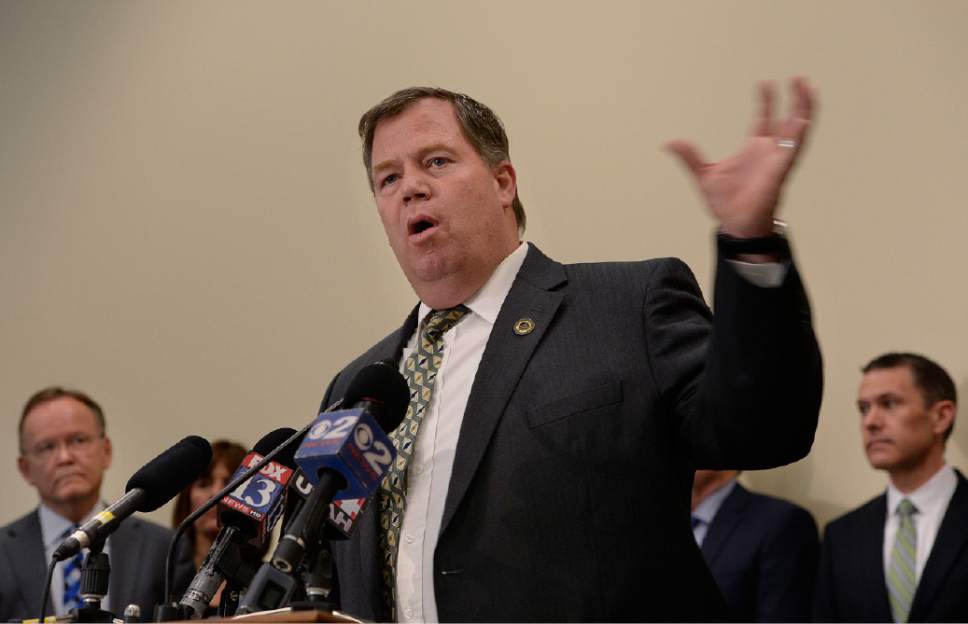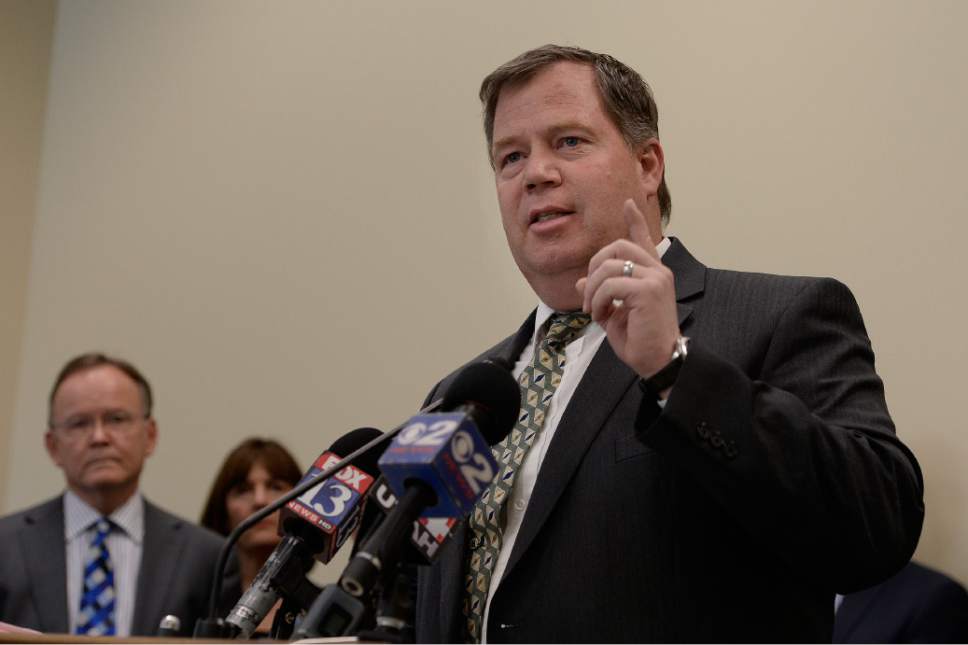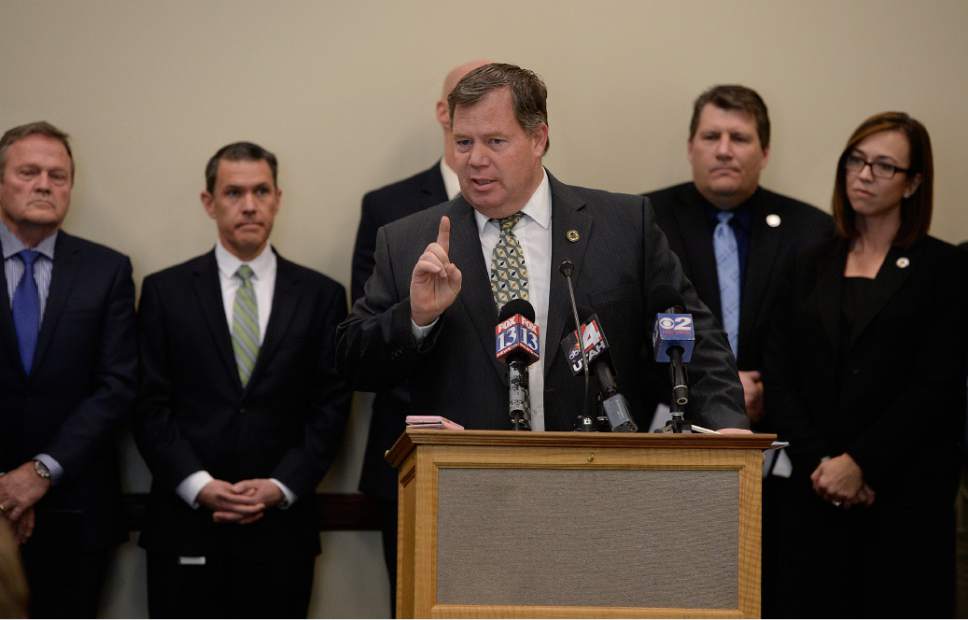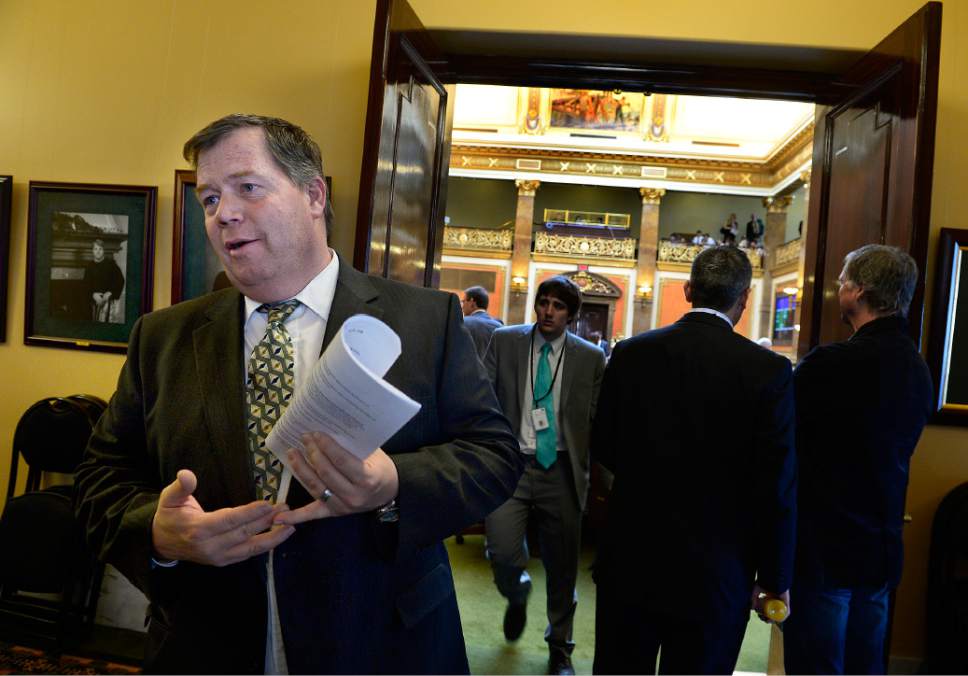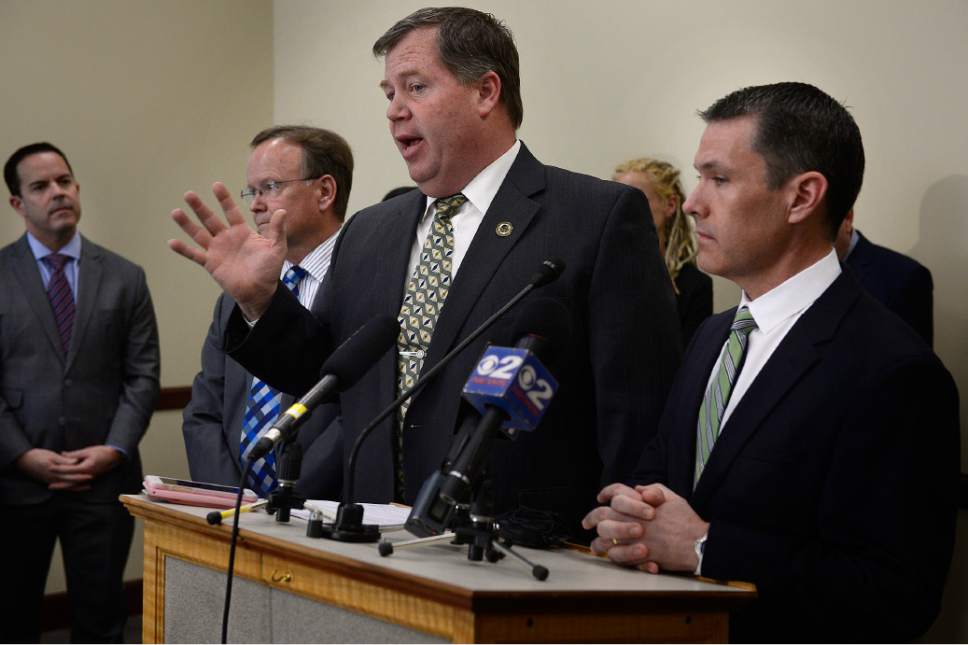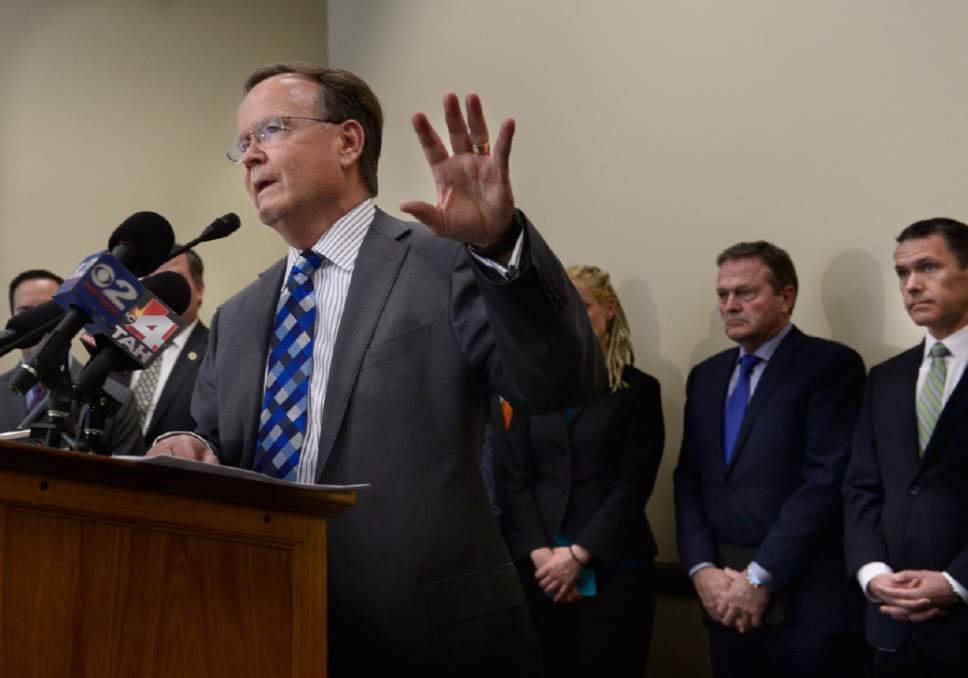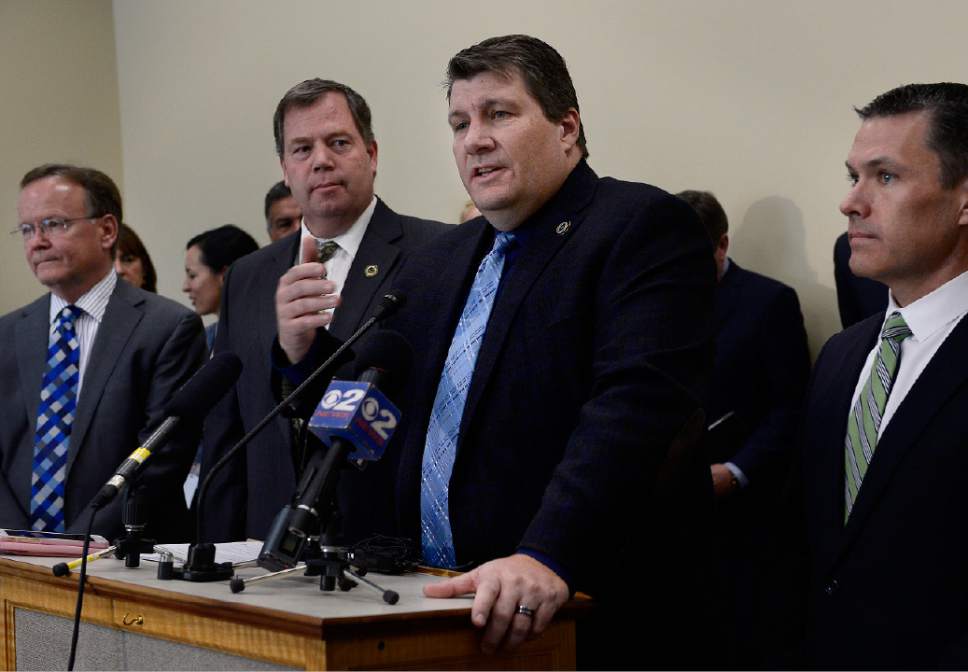This is an archived article that was published on sltrib.com in 2015, and information in the article may be outdated. It is provided only for personal research purposes and may not be reprinted.
Drug offenses would carry a smaller penalty. Probation officers could reward as well as punish. Whenever possible, the mentally ill and drug addicted would be shuttled into treatment rather than a cell.
Rep. Eric Hutchings, R-Kearns, described HB348, released Wednesday, as "an epic shift" in the way Utah manages lawbreakers.
This criminal-justice reform would include an annual price tag of $11 million to $15 million, which would fund hundreds of treatment slots and pay for the salary of 47 new probation officers. Supporters say the plan could save more than $500 million in the long run if it successfully diverts people from jail and prison and reduces the recidivism rate.
"Re-entry is the name of the game. What are people going to do and how are they going to be successful once they go back into society?" Hutchings said. "That is the whole focus of this."
The bill wouldn't have been put forward if Gov. Gary Herbert and legislative leaders weren't trying to find a new home for the state prison, which is now in Draper. The goal is to build a prison of similar size, about 4,000 beds. To make that feasible, the state must reduce its recidivism rate to slow the growth in inmates.
The Utah Commission on Criminal and Juvenile Justice, with the help of the Pew Charitable Trusts, created a list of recommendations, which led to the bill unveiled Wednesday by Hutchings and Sen. Stuart Adams, R-Layton.
They have the support of much of the criminal-justice community, drug-treatment providers and groups such as the American Civil Liberties Union of Utah.
Department of Corrections Director Rollin Cook was particularly laudatory of the bill, while at the same time critical of the "tough-on-crime approach" that has kept the state safe but led to mass incarceration. He argued that drug offenders are not getting the help they need.
"Historically, we've decided to punish people and subject them to negativity rather than treat them and embrace them with support," he said. "For too long, we've been the hand that holds them down. Now it is time for us to collectively decide that we will be the hand that helps them overcome."
County prosecutors are not sold on this proposal. They worry that the treatment and monitoring money won't make it to rural areas. And they oppose reducing the charges for drug offenses.
The bill would drop a drug-dealing charge from a second-degree felony (one to 15 years in prison) to a third-degree felony (up to five years in prison). It would reduce drug-possession charges from a third-degree felony to a class A misdemeanor (up to one year in jail).
And the charge for possession of a small amount of marijuana would go from a class A misdemeanor to a class B misdemeanor (up to six months in jail).
"We are concerned that this might send the wrong message," said Uintah County Attorney Mark Thomas, who is representing the other prosecutors on this issue. In particular, he doesn't believe drug-dealing charges should be reduced, and he doesn't understand why it would take up to four counts of drug possession before the charge is increased to a felony.
"These proposals are coming from more of a think-tank perspective," he said. "There also is a component to consider from people on the ground, a practical aspect."
Hutchings and Thomas said negotiations continue, but bill supporters see the drug-charge reductions as key to the whole plan.
For lawyers with the ACLU of Utah, these reduced charges are their favorite part of the measure. They argue such a shift would bring Utah more in line with the federal government and a raft of other states, such as Texas, that have recently adopted similar reforms.
"The changes to drug-possession penalties are both very modest and extremely significant," said Anna Brower, a public-policy advocate with the ACLU.
Hutchings argued that a person giving a friend a pain pill can be charged with drug dealing and shouldn't face the same charge as someone moving a major amount of drugs. To get at those differences, this proposal would create an early-assessment system, in which Adult Probation & Parole employees would try to determine the underlying cause of someone's criminal behavior.
Those who are mentally ill or addicted to drugs would be prioritized for more intensive treatment in and out of a correctional facility. The bill also seeks to change the way people are monitored once released on probation or parole. Offenders who behave could see their probation reduced. Those who commit minor violations could find themselves shuttled to jail for stays of three to five days.
Enhanced monitoring and treatment aren't cheap, but the bill doesn't offer any extra money. Rather, Hutchings, who is chairman of the budget committee that oversees police and prisons, will seek direct new appropriations. That would include at least $11 million and as much as $15 million. Hutchings and Adams also support efforts to expand Medicaid, which the Legislature is considering. Such an expansion would increase funding for treatment programs.
A House committee could debate and vote on HB348 as soon as Friday.
Twitter: @mattcanham


